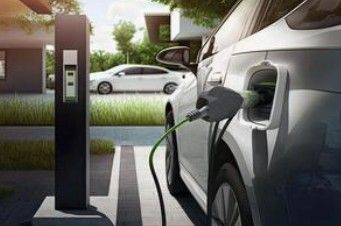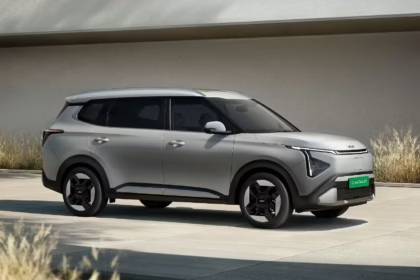Introduction
Recently the Bombay High Court issued an important decision compelling the Maharashtra State Government to create specific regulations which allow Cooperative Housing Societies members to place electric vehicle (EV) charging stations on their properties.
- The Genesis of the Directive
- Legal Arguments and Court Observations
- Court’s Directive to the State Government
- Implications for Housing Societies and Residents
- 1. Rights of Residents to Install EV Chargers
- 2. Obligation of Housing Societies to Facilitate EV Infrastructure
- 3. Potential Increase in EV Adoption
- 4. Requirement for Safety and Compliance Measures
- Challenges in Implementation
- 1. Space Constraints in Older Societies
- 2. Electric Load Capacity
- 3. Cost Sharing Among Residents
- 4. Resistance from Housing Societies
- Steps Forward: How Societies Can Adapt
- 1. Amendment of By-Laws
- 2. Consultation with Electrical Experts
- 3. Implementation of a Fair Cost-Sharing Model
- 4. Collaboration with Government and Private Players
- Government’s Role in Supporting Implementation
- 1. Providing Subsidies and Incentives
- 2. Mandating Power Distribution Companies to Support Housing Societies
- 3. Awareness Campaigns
- Broader Impact on India’s EV Ecosystem
- Conclusion
This ruling represents a breakthrough for enhancing EV adoption in residential cities through its solution of the long-standing infrastructure barrier that prevents many EV owners from charging their vehicles.
The Genesis of the Directive
The authority emerged after Amit Dholakia requested it as the head of a business community at Malabar Hill Mumbai. Dholakia tried to obtain permission from the housing community Bhagwati Bhuwan CHS on Carmichael Road to add an EV charging station in his assigned parking area during May 2022. His request received denial from the society because they lacked policies regarding such installations.
Dholakia filed judicial petitions with the Bombay High Court because they received no reply from the Urban Development Department combined with the Registrar of Cooperative Societies and failed state authority appeals.
The Indian residents using EVs face this challenge because their residential associations need guidelines for EV infrastructure installation although India supports environmentally friendly transportation. Through this case a legal precedent emerged thus compelling the state authorities to establish comprehensive solutions that eliminate this policy conflict.

Read more about 2027’s most affordable Volkswagen Teases EVs that are expected to launch.
Legal Arguments and Court Observations
Dholakia’s courtroom representative asserted that his fundamental right to property ownership clashed with the state’s EV promotion initiatives through the society’s refusal to allow EV charging infrastructure within their premises. The court affirmed that Maharashtra shows strong support for EV policies but housing societies present the main barrier to policy execution.
The court made several essential points which included:
- The Maharashtra government supports environmentally friendly transportation initiatives through its EV policy yet residential charging infrastructure gaps stand as a substantial hindrance to EV penetration.
- The right of residents to add EV charging points in housing societies remains preserved unless their society shows legitimate safety or feasibility reasons to deny installation.
- The Maharashtra Cooperative Societies Act requires immediate changes to cooperative housing society by-laws because residential districts need EV infrastructure development.
- The installation of EV charging points within housing societies advances environmental protection goals because it reduces fuel dependence that causes air pollution.
Court’s Directive to the State Government
The judges Girish Kulkarni and Advait Sethna from the division bench instructed the Registrar of Cooperative Societies to speed up the creation of rules regarding EV charging infrastructure for housing societies. Housing societies must modify their by-laws to establish provisions that let residents install charging points following safety standards and room assessment.
This move is expected to:
- The court wants housing societies to resolve their confusion about EV charging system installation procedures.
- Housing societies must accept valid reasons when they decide to deny electric vehicle installation requests.
- The adoption of electric vehicles among residents will increase because housing communities have eliminated key infrastructure obstacles.
Implications for Housing Societies and Residents
The court decision imposes fundamental changes to the relationship between residents and housing societies. The primary impacts include:
1. Rights of Residents to Install EV Chargers
Residents receive permission through this law to establish their own EV charging stations within their designated parking sections. Housing societies must engage in safely implementing EV charger installations provided that proper space exists for installation.
2. Obligation of Housing Societies to Facilitate EV Infrastructure
The housing societies need to revise their existing set of by-laws in order to create appropriate regulations for EV charging infrastructure. Housing societies need to support EV charger requests unless they present technical or safety grounds to block the installation.
3. Potential Increase in EV Adoption
Ev potential buyers choose to wait before purchasing vehicles since they need their homes equipped with charging systems. When implemented this rule removes the barrier which prevented city residents from buying electric cars.
4. Requirement for Safety and Compliance Measures
Societies need to establish appropriate safety requirements for all approved installations while verifying both electrical power capacity and fire protection standards.
Challenges in Implementation
The new ruling represents a positive move although multiple obstacles must be resolved for successful implementation.
1. Space Constraints in Older Societies
Older housing societies throughout Mumbai and other metropolitan areas face parking space constraints which prevents suitable locations for installing EV charging stations.
2. Electric Load Capacity
Residential buildings need upgrades of their electrical systems for installing multiple EV charging points. The implementation of increased electrical load capacity UILC could burden societies financially thus creating resistance to the cost.
3. Cost Sharing Among Residents
Establishing EV charging facilities requires spending money for wiring the system and installing meters together with potential transformer replacement projects. Residents who do not own EVs may create conflicts because of unclear policies regarding distribution of installation costs.
4. Resistance from Housing Societies
Although the court gave its order several societies maintain their resistance toward execution because of delays in bureaucracy and insufficient awareness of policy changes and opposition to implementing new regulations.
Steps Forward: How Societies Can Adapt
Active adoption of this court decision needs housing societies and their residents to follow these guidelines:
1. Amendment of By-Laws
The new court directive requires housing societies to update their by-laws with Electric Vehicle charging provisions so they meet this new directive.
2. Consultation with Electrical Experts
Housing societies need to work together with electrical consultants who will evaluate their power systems to determine the quantity of upgrades required for EV charging infrastructure implementations.
3. Implementation of a Fair Cost-Sharing Model
Societies should establish an open cost division system to fairly distribute expenses between vehicle owners having electric vehicles and those without them.
4. Collaboration with Government and Private Players
The establishment of joint EV charging infrastructure by housing societies depends on their partnership with government agencies and power distribution companies together with private EV charging providers.
Government’s Role in Supporting Implementation
The Maharashtra State Government should adopt multiple deliberate actions to support effective execution of these rules.
1. Providing Subsidies and Incentives
The government should provide financial support to societies who install shared EV charging points because this creates quicker market adoption.
2. Mandating Power Distribution Companies to Support Housing Societies
Electricity providers need to receive direction that obligates them to help societies enhance their electrical load capacity for EV charging facilities.
3. Awareness Campaigns
Awareness campaigns launched by the government will teach both housing societies and residential members about EV charging infrastructure benefits as well as application methods.
Broader Impact on India’s EV Ecosystem
The judicial decision extends its effects throughout areas that extend past the boundaries of Maharashtra. Other states have the opportunity to adopt this precedent which encourages them to create specific policies for residential EV charging infrastructure implementation. This decision implemented with success will produce following advantages:
- The new regulation increases EV sales by addressing the main constraint related to absent residential charging solutions.
- The decision results in less dependency on underdeveloped public charging stations across India at this time.
- By implementing this policy India can simultaneously reach its EV adoption targets and lower carbon emissions rate.
Conclusion
Today marks a significant achievement in India’s shift to sustainable transportation because the Bombay High Court issued mandatory guidelines to establish charging facilities for EVs in housing complexes. Through its infrastructural changes this decision creates conditions for accelerating EV adoption which fulfills governmental sustainability objectives at both country and global levels.
The state government should create inclusive regulations which should have seamless implementation procedures to benefit residents alongside housing societies and urban communities. EnerSys implementation represents both a permission to conduct EV charging operations and a significant step toward sustainable development for Indian city centers. For more details, visit here





